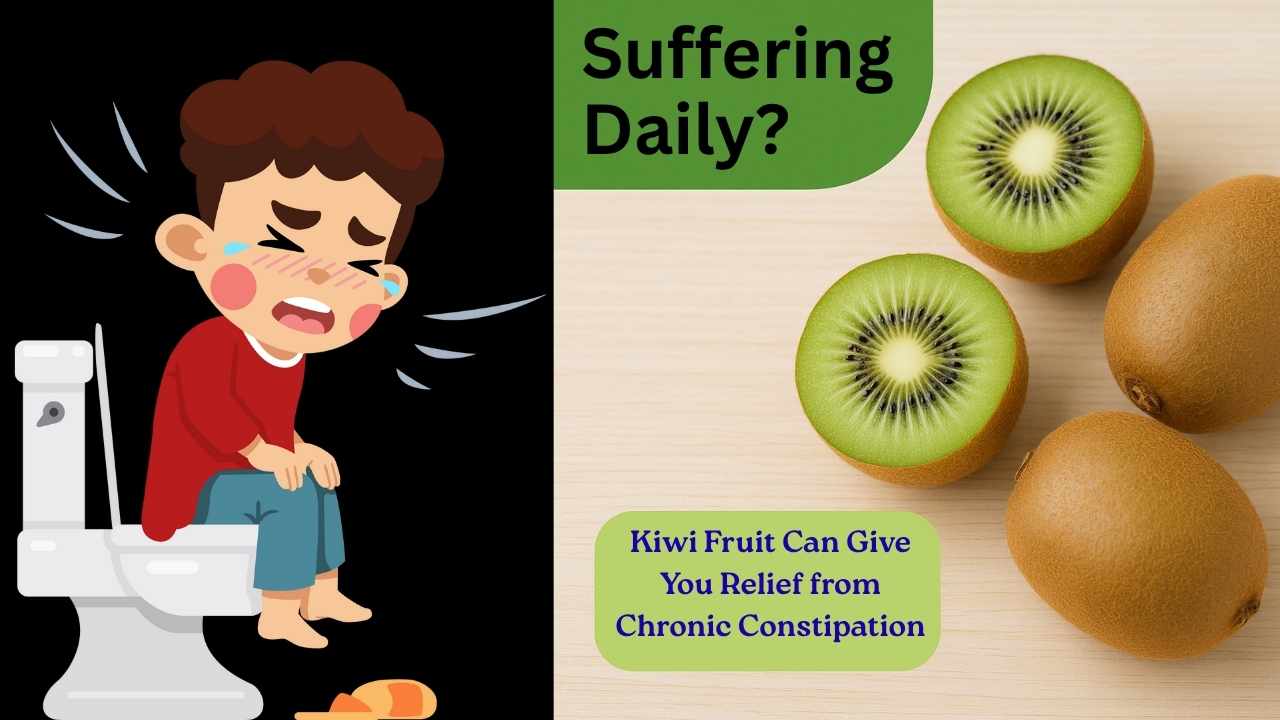If you’re one of the many people living with chronic constipation, you know just how frustrating and disruptive it can be. Whether it’s infrequent bowel movements, straining, or hard stools, the discomfort can interfere with your daily life. The good news: emerging research and recently updated dietary guidelines now provide clearer direction on how to use food and drink to ease chronic constipation. In this post, we’ll explore how targeted nutrition — including the surprising benefits of certain fruits — can change the story.
What’s inside:
Understanding Chronic Constipation and Why Diet Matters
Chronic constipation affects more than one in 10 people globally. Unlike occasional constipation, this condition persists and often requires more than just general advice like “eat more fiber.” Recent guidelines from the British Dietetic Association (BDA) shifted the focus to which specific foods, drinks, and supplements actually show evidence of helping.
The underlying mechanisms are important: bulk formation, stool softening, intestinal transit time, hydration levels, and the gut-microbiome all play a role. By targeting these, diet becomes not just support but a core tool in management.
Related: Heart Disease Symptoms, Tests, Treatement & Natural Care
Key Dietary Guidance from the New Recommendations
The new BDA guidelines list 59 statements (27 strong, 32 qualified) about diet, drinks, and supplements for adults with chronic constipation. Some of the key take-aways include:
- Psyllium fibre supplements show consistent effectiveness for increasing stool frequency and softening stool consistency.
- Probiotics (specific strains) can slightly improve stool frequency and consistency, though results vary.
- Magnesium-rich mineral water (high in magnesium and sulphate) was more effective than low-mineral water for softer stools and increased frequency.
- Certain foods show benefit: for example, kiwi fruit improves symptoms like incomplete evacuation, and may be particularly helpful if you have bloating or gas.
However, there wasn’t enough evidence to strongly recommend whole-diet patterns (such as the Mediterranean diet) specifically for chronic constipation relief.
Related: The Effects of Dehydration: Symptoms, Diseases, Tests, Prevention
Spotlight: How Fruit, Especially Kiwifruit, Can Ease Chronic Constipation
Research has highlighted that a simple fruit can make a real difference for many people struggling with chronic constipation. Specifically, studies show that eating two golden kiwifruits per day significantly improved bowel movement frequency and reduced straining.
Here’s how and why:
- Kiwifruit contains both soluble and insoluble fibre, aiding bulk formation and movement.
- It helps retain water in the stool, softening the stool and making passage easier.
- It has an enzyme called actinidin, which may help digestion and reduce burden on the lower gut.
- It may influence the gut microbiota (beneficial bacteria like Lactobacillus and Bifidobacterium), supporting motility.
Because of these mechanisms, kiwifruit may sometimes outperform fibre supplements in terms of improvement in complete spontaneous bowel movements (1).
Precautions: It’s not a cure-all. Some people may experience increased gas or bloating when starting new fibre/fruit regimens, and hydration remains crucial.
You may like: Why Regular Check-ups during Pregnancy Is Essential? Know Everything About
Practical Diet & Lifestyle Tips for Relief
Putting these findings into practice means combining targeted nutrition with lifestyle factors. Here’s a practical approach:
Diet actions to consider:
- Introduce two kiwifruits daily (or an equivalent fruit option) for at least 3-4 weeks while you monitor bowel patterns.
- Use a psyllium supplement if recommended by your healthcare provider.
- Consider swapping tap water for a mineral-rich water (where available) to support stool softening.
- Ensure you are getting enough overall fibre (fruits, vegetables, whole grains), though note that simply “more fibre” isn’t enough — type and context matter.
- Stay well hydrated: water supports stool softness and gut processing.
Lifestyle factors that reinforce diet:
- Regular physical activity promotes gut motility.
- Mindful eating: take your time with meals, chew well, and avoid rushing.
- Adequate sleep and stress management: the gut-brain connection is real.
Must read: Microplastics in Human Reproductive Fluids: A Wake‑Up Call for Fertility
When to Seek Professional Help
Diet and lifestyle shifts can do a lot, but they aren’t always enough. It’s important to consult a healthcare provider if you experience:
- Fewer than two spontaneous bowel movements per week.
- Sudden changes in stool shape, colour, or smell.
- Unexplained weight loss, persistent pain, or bleeding.
- Severe symptoms such as continuous pain, vomiting, or abdominal distention.
Summary
For those managing chronic constipation, the message is clear and encouraging: targeted dietary changes matter. From the type of fibre you choose (e.g., psyllium) to embracing foods like kiwifruit, and ensuring you’re hydrated and active — you can create a stronger foundation for digestive health. While there’s no “one size fits all” miracle, the evidence suggests that these strategies offer measurable benefits for many. If you’re ready to take control of your gut health, start by integrating one or two of these changes today and monitor your progress.
